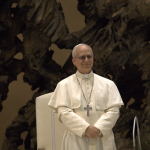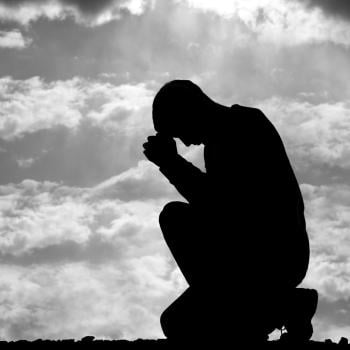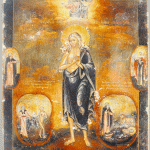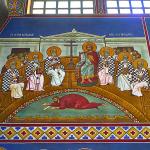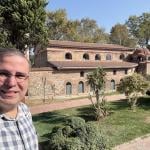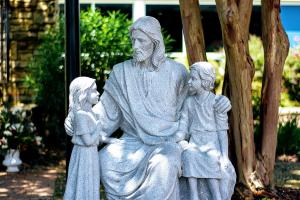
Children are important, they have value; their innocence and the way they rely upon others for their protection has God look upon them with great care and concern just as God looks upon with concern the poor and others who have little to no power of their own in the society they live in. We often remember how Jesus told us that what we do to the least in society we do to him, but we often forget he also said that when we receive children, we receive him in them:
At that time the disciples came to Jesus, saying, “Who is the greatest in the kingdom of heaven?” And calling to him a child, he put him in the midst of them, and said, “Truly, I say to you, unless you turn and become like children, you will never enter the kingdom of heaven. Whoever humbles himself like this child, he is the greatest in the kingdom of heaven. Whoever receives one such child in my name receives me” (Matt. 18:1-5 RSV).
Jesus is telling us more than that we should welcome children in his name. We are also told one of the ways to become great is to become like a child. We must humble ourselves, and that means, paradoxically, we must stop seeking to be great. We must follow Jesus’ example, who, though God, emptied himself of the divine glory to become not only one of us, but one of the least of humanity, a poor wanderer who ended up having no place to call his own. We become like children when we return to the innocence children have. To be sure, not all children are so innocent and humble. Some are taught and trained to think of themselves as great due to the privilege and status their family has in society, but that is not the norm. Even then, such children have other qualities which are important, among which, children tend to the world at large in amazement. They desire to learn what is out there. This is exactly what many of us have lost as we grew up, and it is what God wants us to recover:
The child has time to take time as it comes, one day at a time, calmly, without advance planning or greedy hoarding of time. Time to play, time to sleep. He know nothing of appointment books in which every moment has already been sold in advance. [1]
It is this ability to be amazed with the world, to find good in it, indeed, to find more and more things which amaze us, which we need in order to find joy in life. The humility, the innocence of children, actually helps them to be open and receptive to the world because they do not possess the pride we have, the pride which has us look to ourselves and not beyond ourselves, a pride which does not allow us to be amazed at the glory beyond ourselves. This is why it is important for us to take on the innocence most children have, the kind which allows them to be humble without hating themselves, if we want to be to children of God, because how can we be children of God if we do not seek to take on the best qualities of children?
If we can return to the awe we once had when we were children, if we can once again look around ourselves and receive the good which is found in all things, we will be able to have the proper relationship we need with the world and all that is in it. This is what will allow us to be truly great, indeed, to be wise: “People who are great do not lose their childlike minds. Children are true sages.”[2] Children find it easier to learn because they are motivated by the awe they experience; this is a motivation we lost, in part, due to pride, but also to the way we have been socialized: “In the world of men, childlike amazement is not easy to preserve since so much in education aims at learning habits, mastering tasks and grasping automatic functions.” [3]
It is, therefore, this simple humility, this willingness to look to the world in awe, which Christ wants us to have. Such humility also grants us another kind of realization which children have but we lose when we grow up: the realization that we are not self-made, that we rely upon others for our continued existence and that we cannot make do without others. This sensibility is needed if we are to truly engage society in the way God wants us to do so, to accept our interdependent status, but also, for us to welcome our proper relationship with God, one which recognizes our dependence upon God for our existence:
To be a child means to owe one’s existence to another, and even in our adult life we never quite reach the point where we no longer have to give thanks for being the person we are. This means that we never quite outgrow our condition of children, nor do we therefore ever outgrow our obligation to give thanks for ourselves or to continue to ask for our being. [4]
We not only often lose sight of this truth, we often fight against it by thinking ourselves as being rugged self-made individuals. Again, we are taught to think in this fashion. We need to reject this thought process and the ideology which supports it; we need to accept what children innately understand, and that is, we can never be self-made. We need to realize our radical dependence upon others and upon God. This is the kind of humility we need. When we do so, we will find our experience of the world will change; we will be open to the glory which is around is, open to learning new things from others and from the world at large, and in this way, to become sages as we follow the wisdom which all sages possess, the wisdom to be open and learn new things, a wisdom which children possess until it is taken away from them by society:
The idea of innate moral knowledge began with Mencius. [He pointed out how] a young child, without learning to do so and without thinking about it, knows how to love and knows how to be respectful. [The child’s mind] is genuine and pure and clear and unified and acts according to human fellow-feeling and a sense of moral duty. If an adult does not lose his child’s mind, he too is like a child, with his mind genuine and pure and clear and unified.[5]
We need to return to that purity of heart which children have, and again, as Jesus explained, we are to do so through humility. Such humility will put us in a vulnerable situation. It is in that vulnerability we not only find ourselves becoming closer to Christ, but also with all who are vulnerable in society, be it children (and those who once again find their original childlike purity), or those who are poor or treated as outcasts (such as the way many treat foreigners). This not only draws us close to Jesus, but Jesus draws close to us because God the Word became not just one of us, a human, but he became one of the vulnerable in society, and joined his lot with them so that what is done to them is done to him (and so, he joined his lot with us in our vulnerability).
Therefore, we need to become like children, looking to the world with awe; in doing so, we will find ourselves realizing the truths proclaimed by Christ, including the way we can encounter Christ in others, especially the vulnerable. We will welcome them all as if they are angels, and we will see each of them has a message of God for us to hear:
This is the world of angels we need to enter. With Abraham we are not looking for superhuman, angelic messengers, but we are, childlike, always expecting God to speak His Word in every social encounter with other human beings. Didn’t Jesus tell us He would be present in the times we encounter the sick, the hungry, the thirsty, the dying, the imprisoned and, whatsoever we would do to them, we would do to Him (Mt 25)?[6]
This is what it means to be a true sage, to have a wisdom which is beyond the wisdom of the so-called wise, a wisdom which appears to be foolish and yet is not; it is the wisdom we are called to attain, not, of course, by ignoring all we have learned and studied since we have grown up, for we cannot do that, but my engaging what we have learned with the awe and openness of children. If we do so, we will stop looking to be great because we will be able to experience the greatness found in all things, and with it, the greatness of God and participate in that greatness without trying to possess or control it ourselves.
[1] Hans Urs von Balthasar, Unless You Become Like This Child. Trans. Erasmo Leiva-Merikakis (San Francisco: Ignatius Press, 1991), 53-4.
[2] J.C. Cleary, trans. and ed., Worldly Wisdom: Confucian Teachings of the Ming Dynasty (Boston: Shambala, 1991),71 [Zou Shouyi].
[3] Hans Urs von Balthasar, Unless You Become Like This Child, 46.
[4] Hans Urs von Balthasar, Unless You Become Like This Child, 49.
[5] J.C. Cleary, trans. and ed., Worldly Wisdom: Confucian Teachings of the Ming Dynasty, 77 [Nie Bao].
[6] George A. Maloney, SJ, Communion of Saints (Hauppauge, NY: Living Flame Press, 1988), 81.
Stay in touch! Like A Little Bit of Nothing on Facebook.
If you liked what you read, please consider sharing it with your friends and family!
N.B.: While I read comments to moderate them, I rarely respond to them. If I don’t respond to your comment directly, don’t assume I am unthankful for it. I appreciate it. But I want readers to feel free to ask questions, and hopefully, dialogue with each other. I have shared what I wanted to say, though some responses will get a brief reply by me, or, if I find it interesting and something I can engage fully, as the foundation for another post. I have had many posts inspired or improved upon thanks to my readers.


